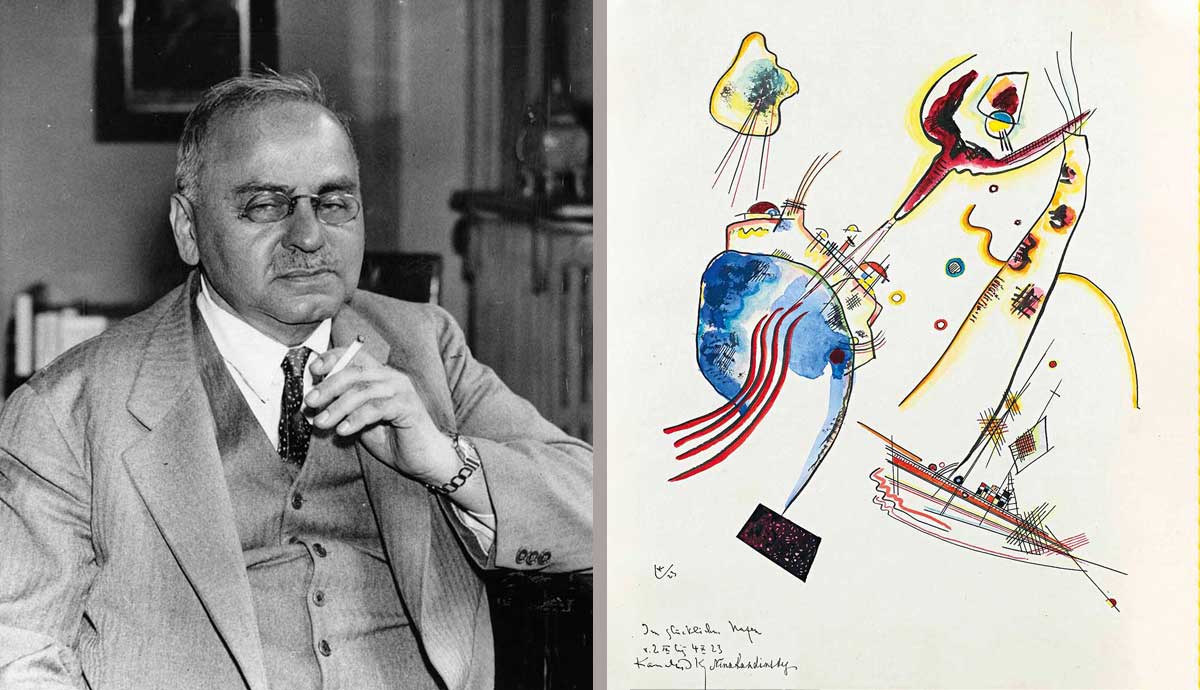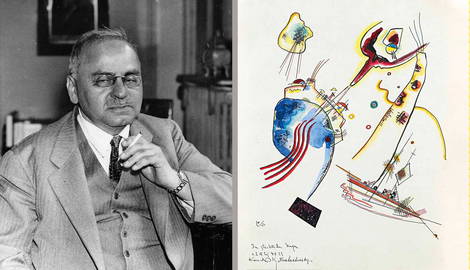
Once in a while, a book can completely change your outlook on life. This is what The Courage to be Disliked did for me. The book, written by Japanese authors Ichiro Kishimi, a teacher of Adlerian psychology, and Fumitake Koga, examines happiness through the lens of the theories and work of 19th-century Austrian psychologists Alfred Adler. Adler is one of the most legendary psychologists you’ve never heard of because his work was outshined by his contemporaries and colleagues Carl Jung and Sigmund Freud. In this article, we will touch on several of Alfred Adler’s most influential ideas.
Alfred Adler: Trauma Doesn’t Influence Our Future

Adlerian psychology (or individual psychology as it’s often referred to) offers a refreshing perspective and insights into interpersonal relationships, fear, and trauma. The Courage to be Disliked follows a (Socratic) dialogue between a philosopher/teacher and a young man. Throughout the book, they debate whether happiness is something that happens to you or something that you create for yourself.
Alfred Adler believed that our past traumas don’t define our future. Instead, we choose how traumas affect our present or future lives. This assertion goes against what most of us learn at university and possibly negates many people’s experiences.
“We do not suffer from the shock of our experiences—the so-called trauma—but instead, we make whatever suits our purposes out of them. We are not determined by our experiences, but the meaning we give them is self-determining.”
In other words, he claims that one doesn’t suffer from the shock of their experience (the trauma), but that we feel that way because that was our goal in the first place. Adler conveys an example of a person that doesn’t want to step out of his house due to anxiety and fear filling him up every time he steps outside. The philosopher asserts that the person creates fear and anxiety so he can stay inside.
Why? Because possibly he’ll have to face the uncertainty of being out there, facing the mass. Possibly, the man will find out that he’s average, that nobody will like him. So, it’s better to stay home and not risk feeling unwanted emotions.

In the Adlerian worldview, the past doesn’t matter. You don’t think about past causes; you think about present goals. You choose an emotion or behavior to achieve a present goal.
It contradicts everything Freud preached: that we’re controlled by our past experiences that cause our current unhappiness. Freud assumed most of our adult lives are spent trying to fight and overcome our past limiting beliefs. Adler believed that we have complete agency over our thoughts and feelings. If we admit that, then it follows that we choose what goes on in our minds and subsequently in our daily lives instead of mindlessly reacting to what happens.
This echoes what the Stoics were also teaching – that we are in control of our destinies. That we choose whether we’re happy, angry, or sad.
Of course, some people go through unspeakable experiences that most people on the planet cannot fathom. Can we tell them that their traumas are “made up”? I would argue that we cannot. There are tools and mechanisms through which one can deal with past traumas.
Still, even people with unavoidable trauma could benefit from Adler’s teaching.
All Problems Are Interpersonal Problems

Alfred Adler believed that all problems we have are interpersonal relationship problems. What that means is that according to Adler, every time we enter a conflict, or argue with someone, the root of the cause is the perception we have of ourselves in relation to the other person.
It might be that we’re suffering from an inferiority complex or insecure about our bodies and appearance. We might believe that others are smarter than us. Whatever the root of the problem is, it boils down to our insecurity and fear that we’ll be “found out”. Whatever we’re keeping inside will suddenly be visible to everyone around us.
“What other people think when they see your face—that is the task of other people and is not something you have any control over.”
Adler would say, “So what if it is?” and I’m inclined to agree. Adler’s solution, in this case, would be to separate what he called “life tasks” from other people’s life tasks. Simply put, you should only bother about things you can control and don’t bother about anything else.
Sounds familiar? It’s precisely what the Stoics are teaching us through Seneca, Epictetus, and Marcus Aurelius, to name a few. You can’t control what another person thinks about you. You can’t control if your spouse cheats on you or the horrendous traffic today. Why allow them to wreak havoc on your mood?

According to Adler, self-acceptance is the solution to most of these issues. If you’re comfortable in your skin, in your mind, you will not care about what others think. I’d add that you should probably care if your actions or words harm another person.
Adler believed that we should all be self-sufficient and not dependent on others for our happiness. It’s not that we should be castaways. After all, the philosopher says in the book that we wouldn’t feel lonely if there were no people on the planet. Thus, we wouldn’t have any interpersonal problems. It’s that we should be, as Guy Ritchie eloquently put it “Masters of our Kingdom”.
The basic idea is the following: In any interpersonal situation you find yourself in, ask yourself, “Whose task is this?” It’ll help you distinguish between things you should bother with and those you should avoid.
Welcome Rejection

As the book title goes, you should have the courage to be disliked. It can be a strenuous exercise, but it’s well worth trying. It’s not that you should actively seek to be disliked, but that you should let out your authentic self when interacting with others.
If that rubs someone the wrong way, that is not your “task.” It’s theirs. In any case, it’s tiresome to try and constantly please everyone. We’ll deplete our energy and won’t be able to find our true selves.
Sure, it takes some bravery to live this way, but who cares? Suppose you fear what other people would think about you. In that case, you can try an exercise that the author Oliver Burkeman did to try out a theory promoted by the renowned psychologist Albert Ellis.
“The courage to be happy also includes the courage to be disliked. When you have gained that courage, your interpersonal relationships will change into things of lightness.”
In his book “The Antidote: Happiness for People Who Can’t Stand Positive Thinking“, Burkeman recalls his experiment in London. He boarded a crowded subway train and shouted out each subsequent station for everyone to hear. He put all his might into shouting the names. Some people noticed and gave him a weird look. Others snorted. Most just minded their own business as if nothing happened.
I do not recommend you do the exact exercise. But, try and come out of the shell once in a while, see what it’s like. I’d wager that your thoughts create a less attractive scenario than the reality will turn out to be.
Competition Is a Losing Game

Life isn’t a competition. The sooner you realize this, the faster you stop comparing yourself to others. You want to be in competition with yourself. With your ideal self. Try to do better every day, be better every day. Ditch envy. Learn to celebrate the achievements of others, not see their success as evidence of your failure. They’re just like you, just on different journeys. No one of you is the best, you are simply different.
Life isn’t a power game. When you start comparing and trying to be better than other human beings, life becomes drudgery. If you focus on your “tasks” and doing your best as a human being, life becomes a magical journey. Admit when you’ve made a mistake, and don’t be angry when others make them.
“The moment one is convinced that ‘I am right’ in an interpersonal relationship, one has already stepped into a power struggle.”
Adlerian psychology helps individuals live as self-reliant individuals that can cooperate within society. That means staying in their relationships, and working on improving them, not running away.
Alfred Adler: Life Is a Series of Moments

In of the book’s conversations between the teacher and the young man, the teacher says the following:
“The greatest life-lie of all is to not live here and now. It is to look at the past and the future, cast a dim light on one’s entire life and believe that one has been able to see something.”
It echoes what spiritual philosophers such as Eckhart Tolle have been echoing for decades. There is only the present moment; there’s no past, no future. All you need to focus on is the present moment.
It’s a concept that needs practice; how do you do that in everyday life? My impression is that you should tune in to your surroundings once in a while. Notice the small stuff, the flowers, the trees, and the people around you. Notice the beauty of what surrounds you. Meditation helps, but it’s not necessary.
The point is, Alfred Adler believed that you should forget about the past, avoid stressing over the future, and focus on the now. When you do a task, give yourself entirely to it.










